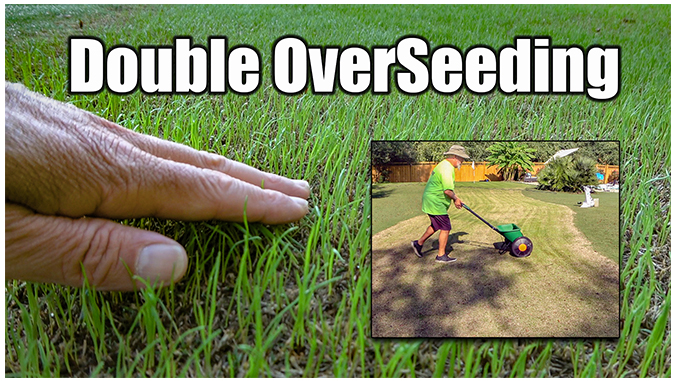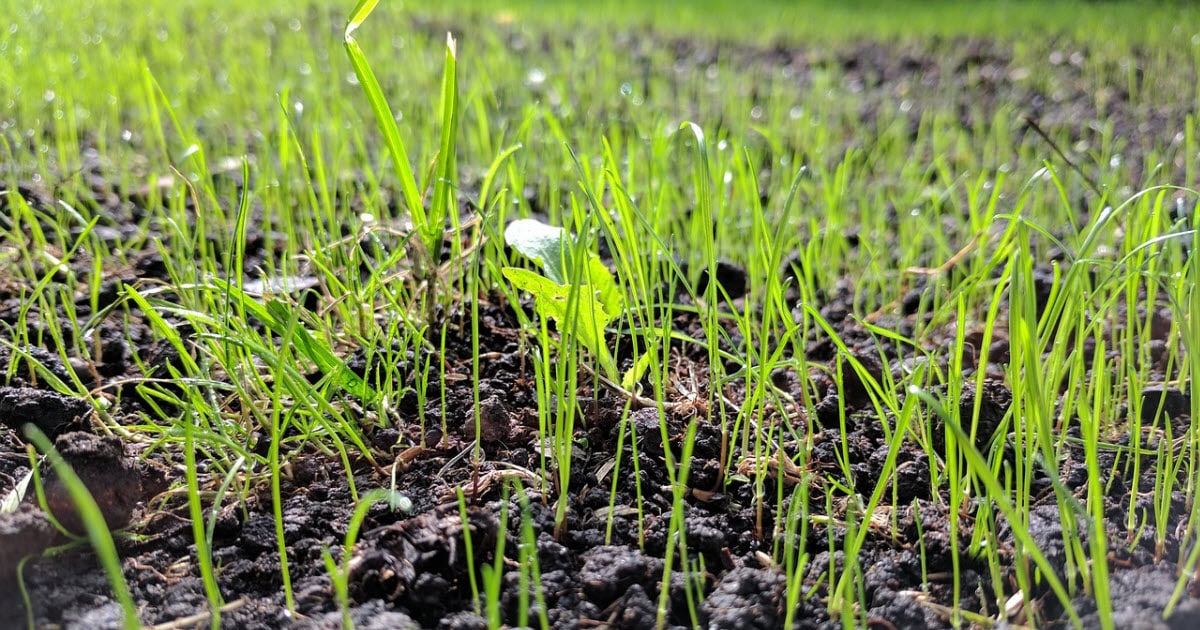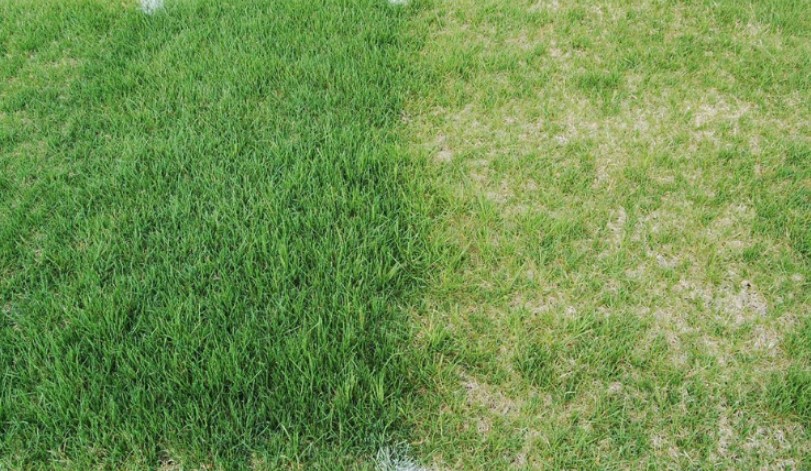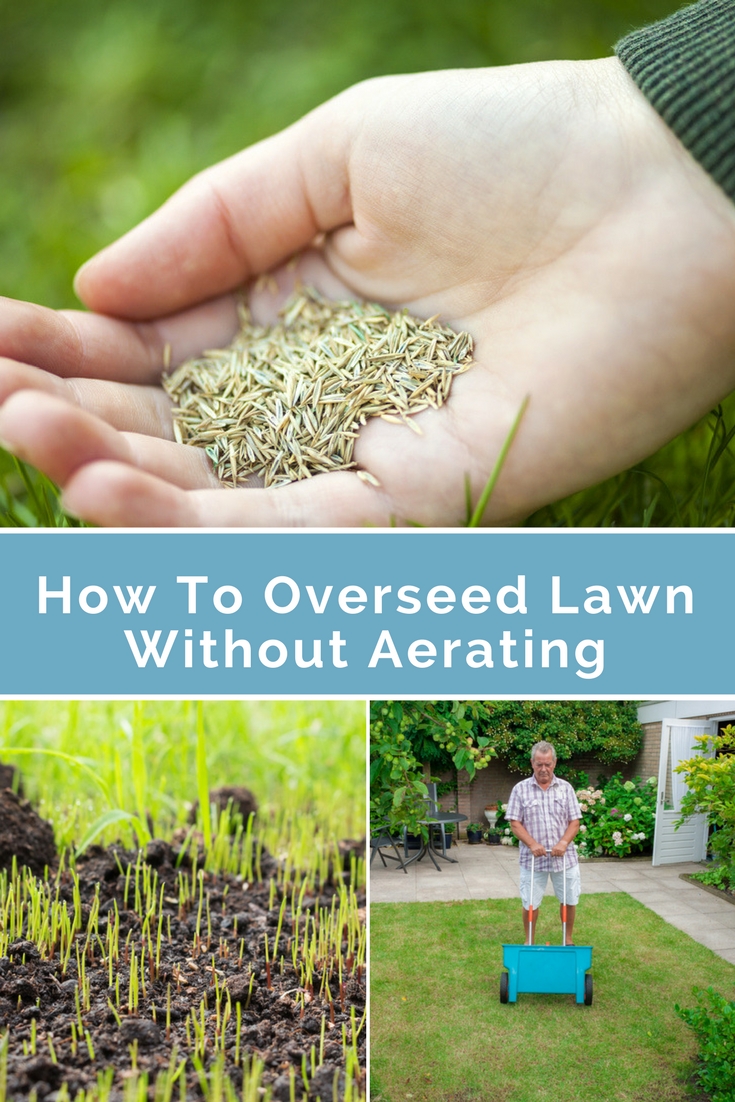How To Overseed A Lawn
Having a lush, green lawn is a dream for many homeowners. One way to achieve this is through overseeding. This process involves planting grass seed over an existing lawn to improve its density, color, and overall health. So how can you overseed your lawn successfully? Take a look at the tips, ideas, and how-tos below.
Choose the Right Seed
Not all grass seeds are created equal. You should choose a seed that is appropriate for your climate and soil type. For example, if you live in a warm climate, you may want to choose Bermuda grass or zoysia grass. If you live in a cooler climate, tall fescue or perennial ryegrass may be better options.

Prepare the Lawn
Before you start overseeding, you need to prepare your lawn. This involves mowing your grass shorter than usual and removing any debris or dead grass. You can also use a rake or dethatcher to loosen the soil and remove any thatch buildup. This will create a better environment for the new grass seed to grow.

Seed the Lawn
Once your lawn is prepared, it's time to seed. First, you should determine how much seed you need based on your lawn's square footage. You can use a seed spreader to distribute the seed evenly over the lawn. It's important not to overseed, as this can lead to competition for resources and poor growth. Follow the instructions on the seed package for the appropriate amount to apply.

Water the Lawn
After you've seeded your lawn, it's important to keep it moist. Water the lawn lightly every day until the new grass is established. This can take several weeks, so be patient. Once the grass is established, you can reduce watering to once or twice a week.

Mow the Lawn
Once the new grass has reached a height of about 3 inches, you can start mowing it. Be sure to set your mower blade high for the first few mowings to avoid damaging the new grass. Gradually lower the blade as the grass becomes more established.

Fertilize the Lawn
To maintain a healthy lawn, it's important to fertilize it regularly. You can use a fertilizer that is appropriate for the type of grass you have. Be sure to follow the instructions on the fertilizer package for the appropriate amount to apply.
The Benefits of Overseeding
Overseeding has many benefits for your lawn. It can improve its overall health and appearance, making it more resistant to disease, pests, and drought. Additionally, overseeding can help to fill in bare spots and thicken thin areas. This can make your lawn look fuller and more lush.
Conclusion
Overseeding your lawn can be a simple and effective way to achieve a healthier, more beautiful lawn. By following these tips, ideas, and how-tos, you can ensure that your overseeding project is a success. Remember to choose the right seed, prepare the lawn, seed it properly, and maintain it through regular watering, mowing, and fertilizing. With a little bit of effort, you can enjoy a lush, green lawn that will make your neighbors jealous.
If you are looking for How to Overseed Lawns Without Aerating - Best Manual Lawn Aerator you've came to the right page. We have 7 Images about How to Overseed Lawns Without Aerating - Best Manual Lawn Aerator like How To Overseed Your Lawn - Big Foot Turf, Colorado, How to Overseed Your Lawn | Blain's Farm & Fleet Blog and also How to Overseed Your Lawn | Blain's Farm & Fleet Blog. Read more:
How To Overseed Lawns Without Aerating - Best Manual Lawn Aerator
 manuallawnaerator.blogspot.com
manuallawnaerator.blogspot.com overseed aerating lawns without lawn way
How To Make Lawn Green And Thick? - Garden Helpful
 gardenhelpful.com
gardenhelpful.com lawn overseed make green thick
How To Overseed Lawn Without Aerating - A Green Hand
 agreenhand.com
agreenhand.com overseed lawn without aerating agreenhand
How To Overseed Your Lawn | Blain's Farm & Fleet Blog
 www.farmandfleet.com
www.farmandfleet.com overseed
How To Overseed Lawn In The Fall Lawn Care
 www.howtowithdoc.com
www.howtowithdoc.com fall overseeding overseed lawn
How To Overseed A Lawn The Right Way - Lawn Chick
 lawnchick.com
lawnchick.com overseed trava right travnjak tepih ili setva
How To Overseed Your Lawn - Big Foot Turf, Colorado
 bigfootturf.com
bigfootturf.com lawn overseed
How to make lawn green and thick?. Lawn overseed. How to overseed a lawn the right way
Post a Comment for "How To Overseed A Lawn"